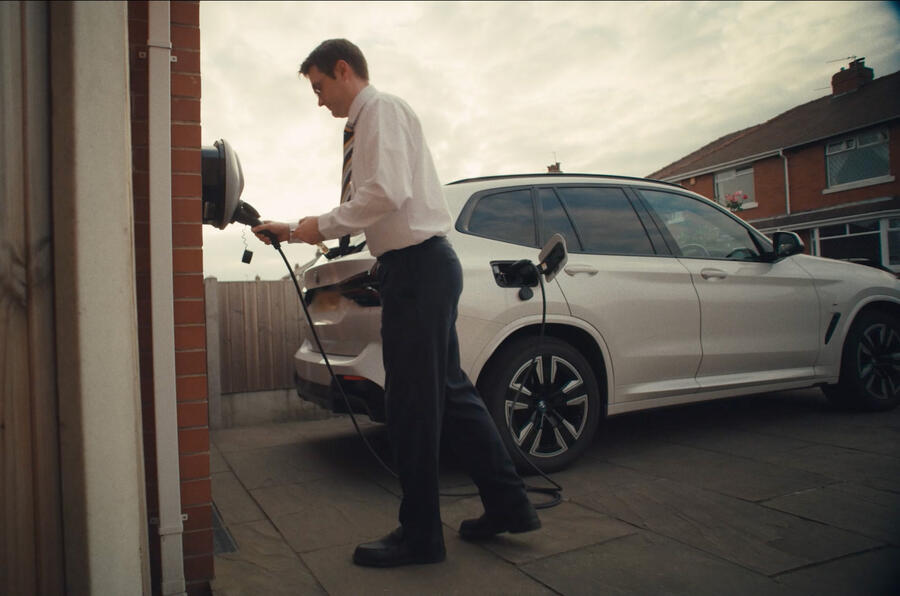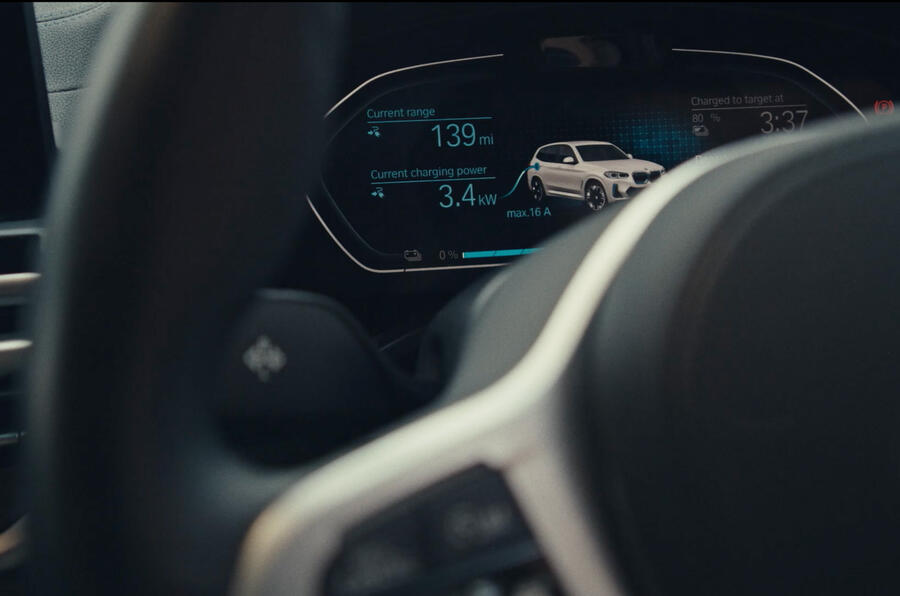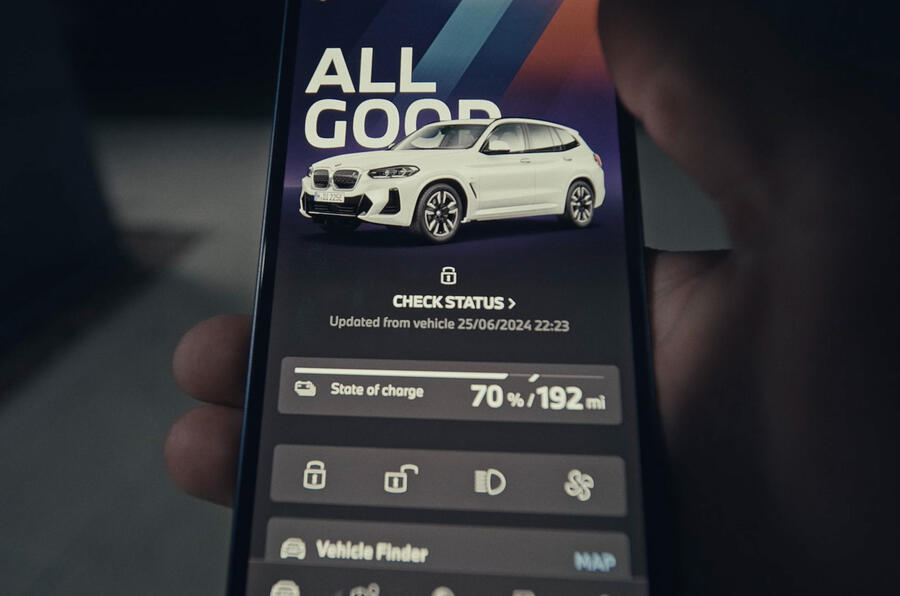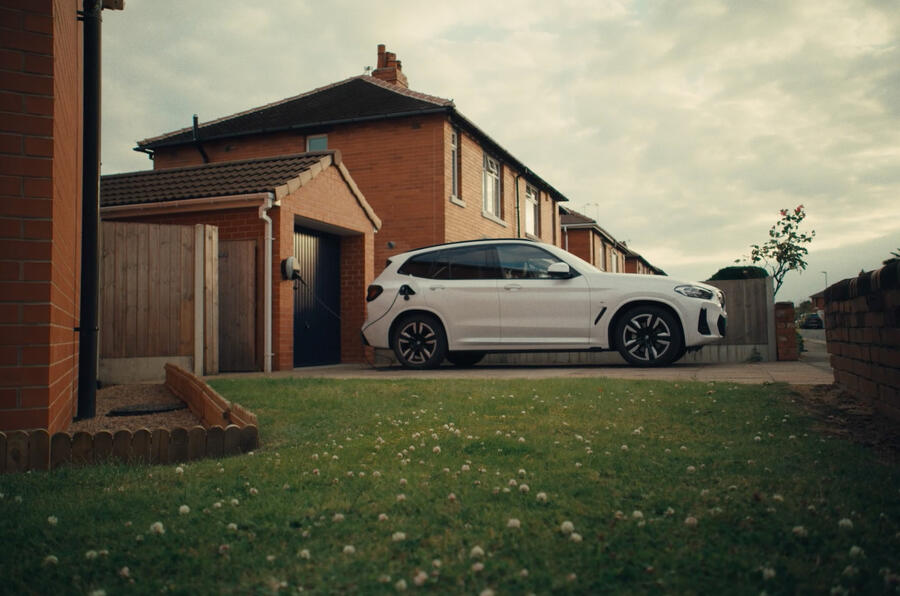Sometimes, driving an electric car is the smarter choice: in more ways than one.
Take railway signalman James. When he first considered going electric, his biggest incentive was the potential savings in fuel costs. James put those savings towards the price of his vehicle, which ultimately let him get behind the wheel of a BMW iX3.[1]
“Never in a million years would I’ve thought I’d be sat driving a BMW,” James admits. “But because it’s an electric car, the saving that I’m making on the fuel means I can afford to put myself in this car.”
Watch the video above – or read on – to learn more.
Learn more about BMW’s electric line-up
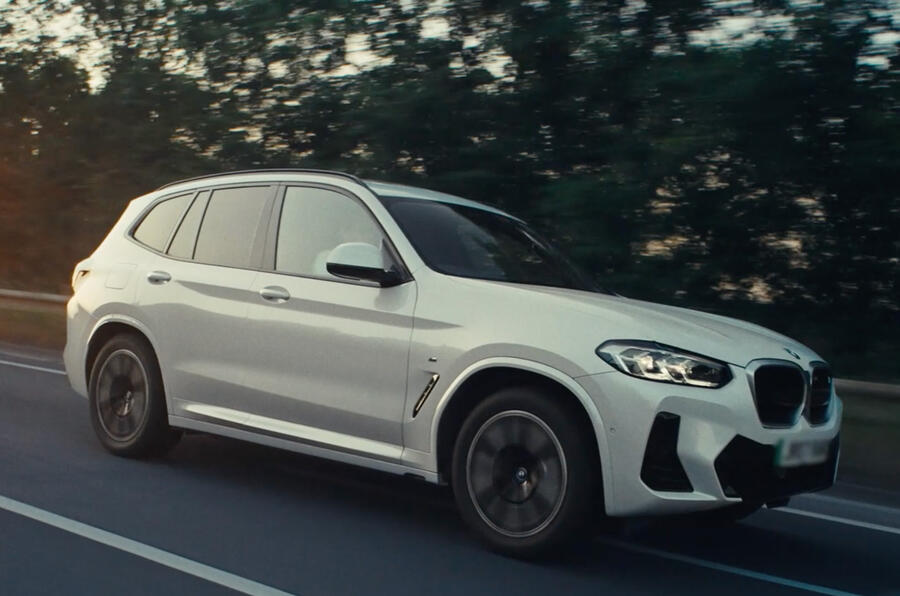
The cost-savings of home charging
Like many drivers, James has a fairly regular daily commute from his home in Wakefield to his place of work in Doncaster and back. “It’s a 50-mile round trip each time I commute,” James explains. “So, I can work out pretty much to the nearest 100 mile what my mileage is going to be for that month.”
“A couple of years ago, I wanted to look at options. Could I put myself in a more premium brand for the same overall cost of motoring? It was all calculated based on home charging, and the cost the electric is coming in at about 10% to 20% of the cost of the diesel, so it’s a massive saving for me – a saving I’ve contributed towards the cost of the car.”[1]

How BMW Finance makes going electric easy
BMW Finance offers a wealth of smart simple ways to help you figure out the costs of making the electric switch with BMW – saving you time and effort, and ultimately making financing an electric BMW even easier.[2]



